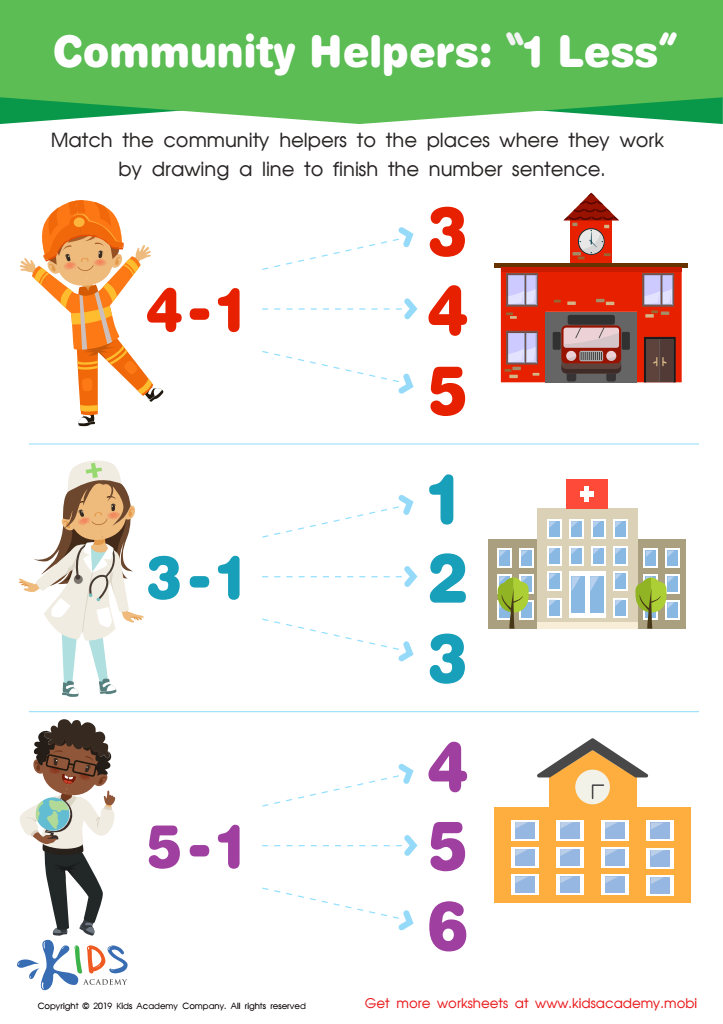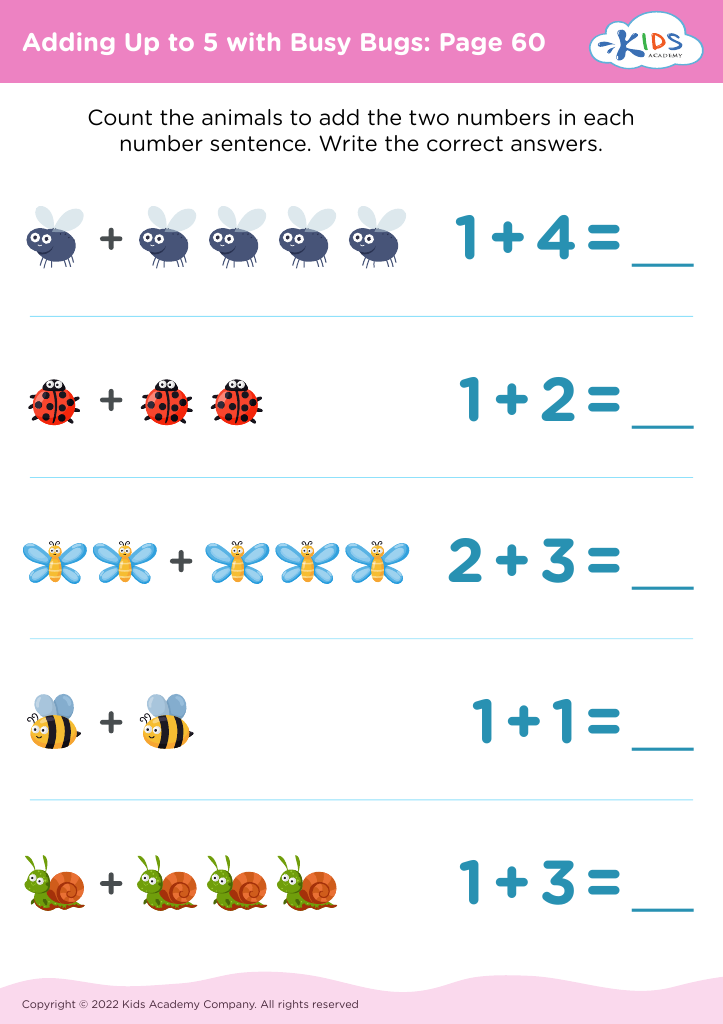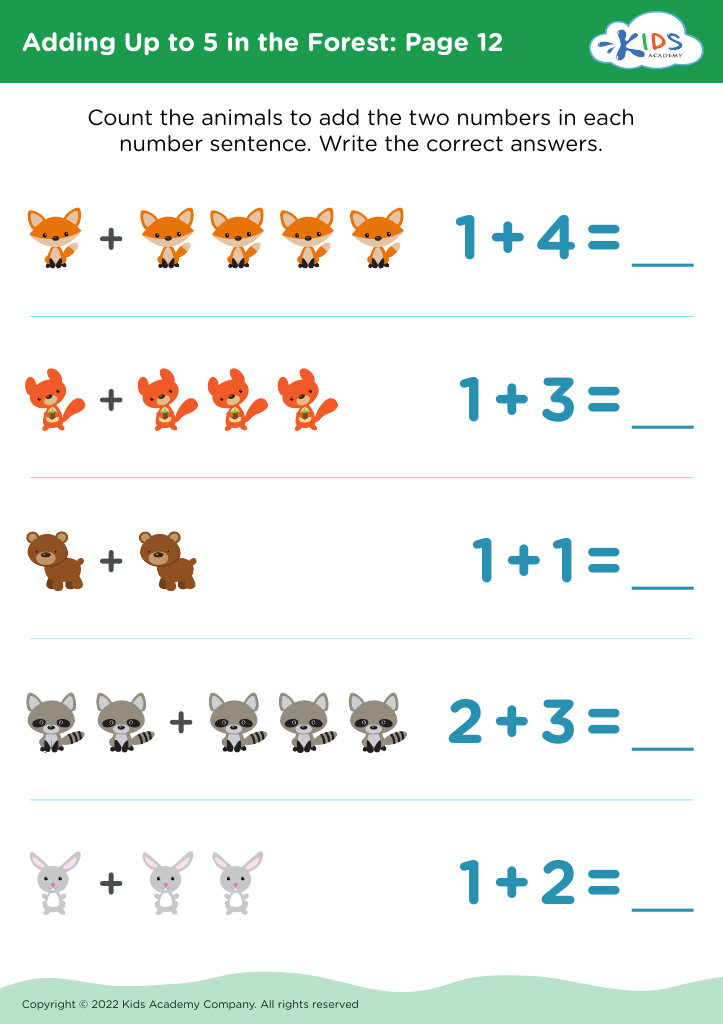Basic counting skills Addition Worksheets for 5-Year-Olds
3 filtered results
-
From - To
Introduce your child to the world of numbers with our engaging "Basic Counting Skills Addition Worksheets for 5-Year-Olds." Designed to make learning fun and effective, these worksheets focus on simple addition, helping young learners understand basic math concepts. Vibrant graphics and interactive exercises keep kids interested as they practice counting and adding. Perfect for kindergarteners, these worksheets enhance number recognition, improve fine motor skills, and build a strong math foundation. Ideal for both home and classroom use, our worksheets are a fantastic way to support your child's early education journey. Ignite a love for math today!


Community Helpers: 1 less Worksheet
Parents and teachers should deeply care about fostering basic counting and addition skills in 5-year-olds because these foundational mathematical abilities are critical for their cognitive and academic development. At this age, children are at a crucial stage where they are like sponges, readily absorbing knowledge that will form the basis of their future learning. By mastering basic counting and addition, children develop critical thinking and problem-solving skills, which are essential not only in mathematics but across all subjects.
Furthermore, early proficiency in counting and addition builds a child's confidence and enthusiasm for learning. When children understand mathematical concepts, they are more likely to engage actively in the classroom, ask questions, and approach problems with confidence. This positivity towards learning and problem-solving fosters an enduring love for education.
Counting and addition are also ubiquitous skills used in everyday life. From understanding time and money to sharing toys with friends, these skills are practical and help children navigate day-to-day activities. They promote logical thinking, sequence understanding, and pattern recognition, which are fundamental aspects of a child’s overall intellectual development.
Investing time and effort in these basic skills thus sets the stage for more complex mathematical and analytical thinking later on, securing a smooth academic journey and empowering children to handle real-world problems adeptly.


 Assign to My Students
Assign to My Students




















